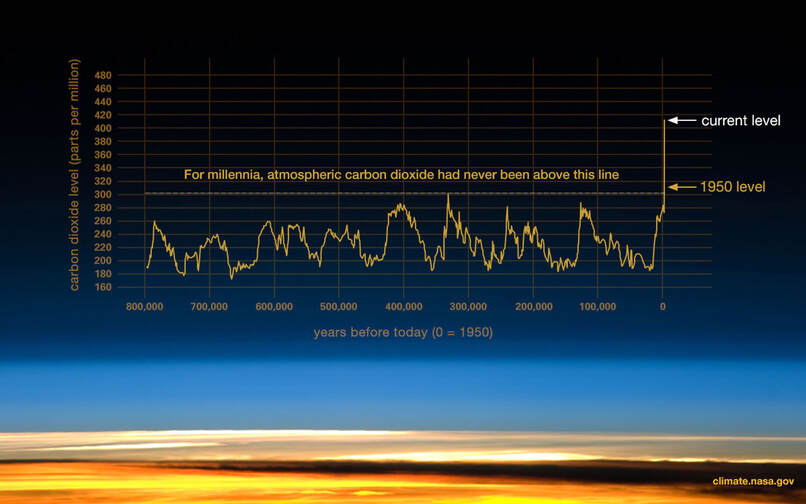Climate Change is a very controversial topic that has been debated over and over and over in the past decades. So is it really a big deal? In my opinion it is.
Evidence:
Earth's climate has changed throughout history. Just in the last 650,000 years there have been seven cycles of glacial advance and retreat, with the abrupt end of the last ice age about 11,700 years ago marking the beginning of the modern climate era — and of human civilization. Most of these climate changes are attributed to very small variations in Earth’s orbit that change the amount of solar energy our planet receives.
The current warming trend is of particular significance because it is unequivocally the result of human activity since the mid-20th century and proceeding at a rate that is unprecedented over millennia. It is undeniable that human activities have warmed the atmosphere, ocean, and land and that widespread and rapid changes in the atmosphere
The current warming trend is of particular significance because it is unequivocally the result of human activity since the mid-20th century and proceeding at a rate that is unprecedented over millennia. It is undeniable that human activities have warmed the atmosphere, ocean, and land and that widespread and rapid changes in the atmosphere
More examples:
Causes:
Scientists attribute the global warming trend observed since the mid-20th century to the human expansion of the "greenhouse effect"— warming that results when the atmosphere traps heat radiating from Earth toward space.
Certain gases in the atmosphere block heat from escaping. Long-lived gases that remain semi-permanently in the atmosphere and do not respond physically or chemically to changes in temperature are described as "forcing" climate change. Gases, such as water vapor, which respond physically or chemically to changes in temperature are seen as "feedbacks
Certain gases in the atmosphere block heat from escaping. Long-lived gases that remain semi-permanently in the atmosphere and do not respond physically or chemically to changes in temperature are described as "forcing" climate change. Gases, such as water vapor, which respond physically or chemically to changes in temperature are seen as "feedbacks
Effects:
Global climate change has already had observable effects on the environment. Glaciers have shrunk, ice on rivers and lakes is breaking up earlier, plant and animal ranges have shifted and trees are flowering sooner.
Effects that scientists had predicted in the past would result from global climate change are now occurring: loss of sea ice, accelerated sea level rise and longer, more intense heat waves.
Effects that scientists had predicted in the past would result from global climate change are now occurring: loss of sea ice, accelerated sea level rise and longer, more intense heat waves.
Solution:
I'm no expert in solving climate change, so here I provided the NASA's solution:
- increase energy efficiency;
- increase the use of renewable energy;
- measure, report, and reduce NASA's direct and indirect greenhouse gas emissions;
- conserve and protect water resources through efficiency, reuse, and stormwater management;
- eliminate waste, prevent pollution, and increase recycling;
- leverage agency acquisitions to foster markets for sustainable technologies and environmentally preferable materials, products, and services;
- design, construct, maintain, and operate high-performance sustainable buildings;
- utilize power management options and reduce the number of agency data centers;
- support economic growth and livability of the communities where NASA conducts business;
- evaluate agency climate change risks and vulnerabilities and develop mitigation and adaptation measures to manage both the short-and long-term effects of climate change on the agency's mission and operations;
- raise employee awareness and encourage each individual in the NASA community to apply the concepts of sustainability to every aspect of their daily work to achieve these goals;
- maintain compliance with all applicable federal, state, local or territorial law and regulations related to energy security, a healthy environment, and environmentally-sound operations; and
- comply with internal NASA requirements and agreements with other entities.
Sources:
https://climate.nasa.gov/
https://climate.nasa.gov/


